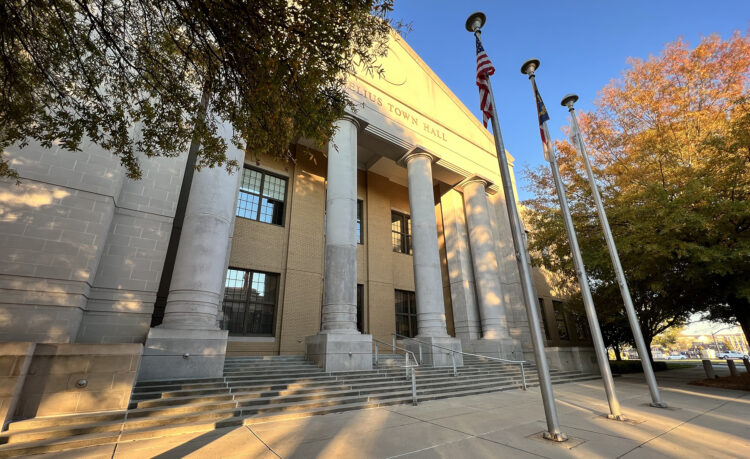
Photo by Jason Benavides
Dec. 10. By Dave Vieser. A controversial state law passed by Republican state legislators–it reduces the power of elected officials such as newly elected Democratic Attorney General Jeff Jackson–contains other elements which have raised concerns for local officials.
The matter arose at the Cornelius Town Board Meeting of Dec. 2, as commissioners were discussing legislative agenda priorities for 2025.
Details
The new state law, which also provided funds for storm-damaged areas of the state, could limit the zoning power of local municipalities.
Town Attorney Karen Wolter said it all happened “at the very last minute of the General Assembly.”
“They included behind closed doors a change in the zoning laws so that local government cannot downzone without the permission of the property owner. That’s a brand-new law, and nobody really knows but it could impact land planning such as comprehensive land plans. We really don’t know the impact of this new law because it was so quickly and poorly written,” she said.
Impact
Town Board members were concerned about Wolter’s comments.

Higgins
“It is important the Town continue to determine local zoning and land use,” said Mayor Pro Tem Scott Higgins. “Cornelius has so little land still available for open space and appropriate development. “
The law under question was vetoed by Gov. Roy Cooper but GOP state legislators are hopeful that they can overturn his veto while they still have a veto proof majority in the General Assembly. The Senate has already voted to overturn the veto, and the House is expected to vote on the issue this week.
That veto proof majority goes away next year, primarily due to the victory by Democrat Beth Helfrich in the House 98 district over GOP candidate Melinda Bales.
Quotable
Mayor Woody Washam also expressed concern with the inability of state law to permit the payment of Impact fees by builders prior to major projects.
“If we were to put impact fees to a referendum I would expect it would pass overwhelmingly, certainly on the state level, and possibly, locally, too. However, the rest of the story is that’s just not going to happen in North Carolina,” Washam said.



